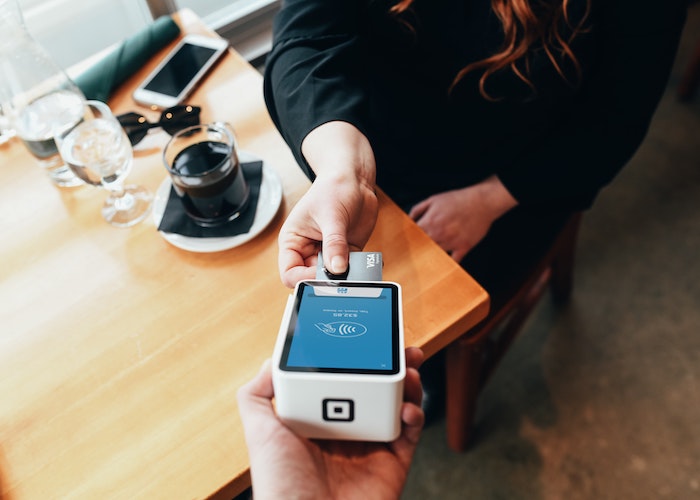How I Overcame My Fear Of Credit Cards And Went From Score Of 475 To 750
The worst thing you can do for your credit, is pretend that it doesn’t exist…
The first time I ever checked my credit score was my senior year of college, when I applied for a credit card.
I was very reluctant since my entire high school and college life I was told that credit cards were bad and would send me down a slippery slope of debt. As soon as I turned 18, I started to receive credit card offers in the mail. My grandmother would tell me horror stories about how credit cards could potentially ruin my life while making me shred each offer. Of course, now I know it was for my own good but, nonetheless, it gave me a very negative view of borrowing money.
Now, fast forward four years later, and there I was a few weeks before graduation, standing inside a Chase Bank and filling out my first credit card application. With a 680 credit score, I got approved for the Chase Freedom card with a $1,500 limit. It was great to have some extra money on hand and I used the card religiously since it had cashback benefits.
Although I paid my bill each month, there were a lot of mistakes I made with my first card. For starters, I only ever paid the minimum balance due. Still not super knowledgeable on credit cards in general, I thought paying what was due was enough. I got into the habit of maxing out my credit card and then slowly paying it off and had no idea how much money I was getting charged in interest on the remaining balance.
Another mistake I made was not paying my bill on time. Even though I paid every month, I would always be a few days late. Still using my credit card like normal, I was in for a huge surprise when I checked my score a year later. I had gone from 680 down to 500. Every horror story I was told as a teenager came back to me.
“I was in for a huge surprise when I checked my score a year later. I had gone from 680 down to 500.”
Remembering all the horrible debt stories I was told, I closed my Chase card thinking it was best to no longer give myself access to that credit line. I thought this was a smart financial decision that would give me back some control over my credit. But again, my credit score dropped. Since I hadn’t paid off the Chase card in full, closing the account made it look like I had no intention to. Frustrated and confused I started to make changes to completely pay off my debt for good. I spent the next year only using cash/debit to make purchases while being terrified to even check my score. It wasn’t until I got more interested in travel that I started to have a change of heart for credit cards. I came across quite a few podcasts and websites claiming you could use credit cards to travel potentially for free.
Of course, I was skeptical. How could something that had put me in a financial hole be used to get me country to country on a discount? This is how I got into the world of points and miles.
Since my first credit card was a cashback card, I had no idea the benefits that would come from stashing and saving points and miles. I became obsessed with hearing the stories and strategies of people who had flown round trip to Europe for free, got to fly first class, or had their hotel paid for all on credit card points. But to get the travel cards that were going to be worth my while, I had to have excellent credit. These banks were not just giving these credit cards to anyone. My credit score would have to be around 700 for my application to even be considered. Not to mention I still had the record of closing my Chase Freedom card a few years back.
“I started reading articles on ways to quickly build your credit score and there was one thing all these articles had in common…”
After about a few weeks of going back and forth with myself, I decided it was time to give credit cards another go. The first step to was to check my credit score. To my surprise, it had gone up from 500 to 600. Still not the best and definitely not good enough to get my travel cards. So I started reading articles on ways to quickly build your credit score and there was one thing all these articles had in common: time. I needed time for my late payment history to drop off, time to build up the age of my credit history, and time to acquire new accounts to show banks that I was a trustworthy borrower. And of course, how do you show a bank you can handle credit? You get a credit card.
I felt like I was going around in circles, but I knew if I wanted to get this travel card and build good credit history, I would have to start out with a basic credit card and work my way up. With my 600 credit score, I was able to get a basic Capital One Credit Card. No perks, no crazy limit, no complication. I used this card for about a year and a half while religiously paying off my card down to $0 and constantly checking my credit score. Finally, I got my score to 690 and figured I might as well try to apply for a travel credit card.
Denied.
At this point I was ready to live off cash because I didn’t know what else to do. After calling the reconsideration line, I ran into another familiar obstacle: time. Although my credit score went up, the bank did not like that I had closed an account within 5 years. So again, I waited. Luckily, there were two travel cards I was trying to get and after my credit score recovered from the slight dip it took from my recent application, I tried again.
Approved!
Finally, after three years of hard work and patience, I had a travel credit card. Now it wasn’t the premium one I wanted, but it was a step in the right direction. Because I was approved for another card, it added to my overall available credit limit, as well as my total accounts being in good standing. The approval bumped my score above 700 putting it at 710. I could finally strategize on how I could be one of the people paying for their travel strictly on credit card perks. I went back to my podcasts and blogs and started researching. Because hotels and airlines have their own partnerships with different banks, my credit card would not be compatible with all of them. But why would I expect anything else? That’s how these companies make their money.
Nonetheless, I was fascinated by the dedication and calculation needed in this new world of currency. Converting points and miles to dollars based on which hotel or airline I was transferring to had become addicting. And the more I researched, the better I got. I would pick out different countries I wanted to visit and practice how I would get there using my credit card points alone. Which airline could I fly? Did I have enough points to get there all in one leg or would I have to transfer? Which hotel could I transfer my points to for a free night? And of course, how would I get the most points in return.
Unfortunately, before I got the chance to execute on any of these scenarios, the world was hit with COVID-19. And as horrible of a situation, this put our world in, I got something that would ultimately benefit me:
Time.
With the world basically shut down, I was able to stack up on points and miles and give my credit score another bump with the additional year of good payment history and account standing. Now I can happily say that I have a 750 credit score and 4 credit cards all in excellent standing (two of which are helping me travel to Africa this summer). Having a credit card is a lot of responsibility. Not in the fact of just owning one but more so realizing how much it can affect your future. Your credit score and credit history hold so much weight when it comes to hitting financial milestones. Getting a car, taking out a mortgage on a house, and even getting approved for an apartment can all be impacted by the type of borrower you are. And while it may be overwhelming to dig into your financial standing, with enough patience and dedication, the worst thing you can do is pretend that it doesn’t exist. I used to be terrified of credit cards thinking they would complicate my finances. But with more control and knowledge, I’m using them to literally maximize each and every dollar on my regular spending.
Alexis Vaughn left her hometown state right after her college graduation. Now in her mid-20s, she hopes to inspire people through her own career and financial journey, while reminding them it’s never too late to change your plans or your goals.
Image via Unsplash





